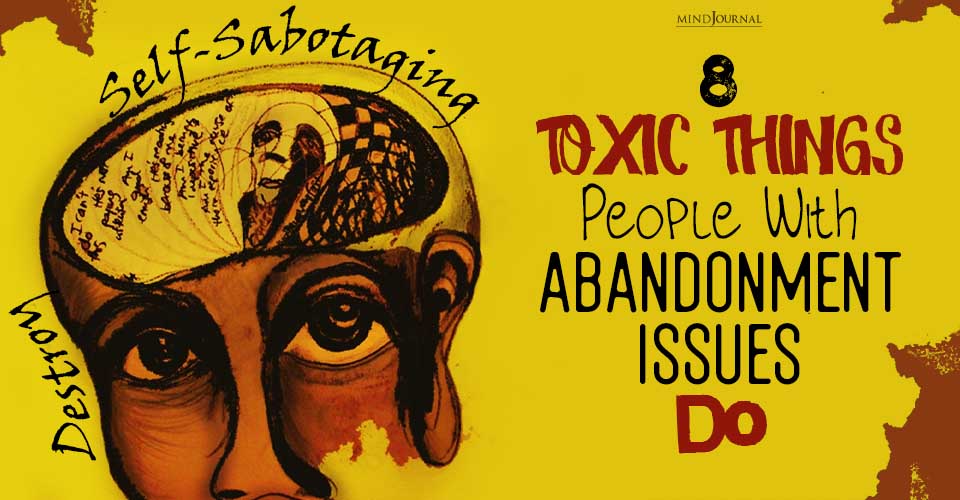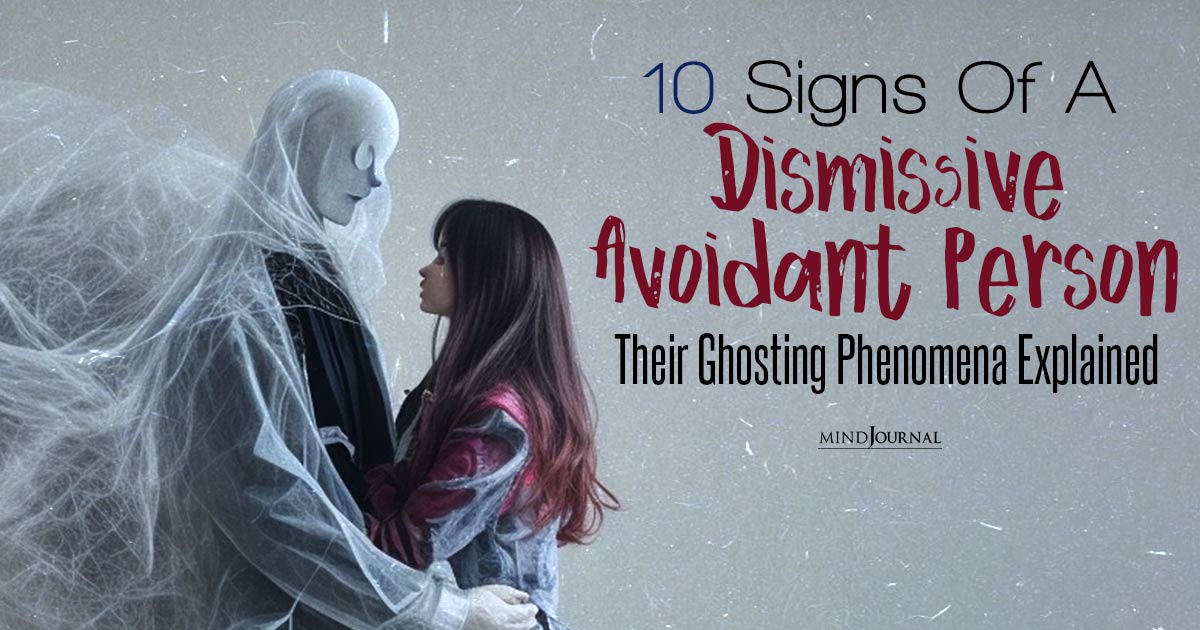Abandonment issues can really mess with relationships, whether you’re the one dealing with them or you’re with someone who is. Many a times, when left unchecked, abandonment issues cause a lot of pain and trauma for both the parties involved. But it does not have to stay that way. The first step towards healing is recognizing the signs. Today, we’ll discuss eight toxic ways people with abandonment issues act in relationships
But first what are abandonment issues and what causes them?
What are abandonment issues?
Abandonment issues refer to the fear that important people or things in your life will eventually leave you. Although not officially recognized in the DSM-5, this term describes the anxiety and behaviors driven by the worry of being abandoned.
This fear can make someone clingy, insecure, jealous, emotionally manipulative, and overly disciplined. Often, these reactions are learned responses to past experiences. Maybe the adults they looked up to growing up reacted this way to rejection or a close friend reacted this way during early adulthood. It can also be learned through their experiences from a previous relationship.
8 Toxic Things People With Abandonment Issues Do
In desperation, people with abandonment issues often act out in ways that can be pretty toxic, even if they don’t mean to. Knowing what these behaviors look like can help you understand yourself better and allow you to form a healthier and more secure connection.
1. Always Doubting Their Partner’s Intentions
People with abandonment issues often struggle with interpreting their partner’s actions in a straightforward way. Instead, they might constantly suspect that their partner is planning to leave them or is being unfaithful. If their partner is late coming home, they might immediately think the worst, like their partner is avoiding them or seeing someone else.
Even simple actions, like their partner being busy at work and not responding to texts right away, can be misinterpreted as signs of disinterest or a prelude to abandonment.
Read More: Self-Abandonment: 3 Ways You Are Abandoning Yourself
2. Finding Faults To Confirm Their Beliefs
People with abandonment issues often focus on finding and magnifying the negatives in their relationships rather than appreciating the positives. This habit can lead them to obsess over every little mistake or quirk. They constantly compare their partner’s actions to an idealized version of what they think a relationship should be.
They keep track of these imperfections as a way to protect themselves. And when the relationship ends, they can convince themselves that it wasn’t meant to be anyway.
3. Excessive Jealousy And Possessiveness
People with abandonment issues often find themselves feeling overly jealous and possessive in their relationships. This stems from a deep fear of being left behind or rejected. When they sense a potential threat to their relationship, their emotions can take over, which leads them to act in ways that might be extreme.

They might feel uncomfortable if their partner spends time with friends or even just shares their day on social media. This insecurity can cause them to react with jealousy, leading to accusations or constant questions about their partner’s whereabouts.
4. Putting Their Partner First And Ignoring Their Own Needs
People with abandonment issues often feel a deep fear of being left alone or rejected. This fear can lead them to prioritize their partner’s needs over their own, which might seem like a way to keep the relationship strong. However, this behavior can actually create problems in the long run.
When they sacrifice their needs to please their partner, they might think they’re showing love and commitment. But in reality, they might be neglecting their own happiness and well-being. Later, this can turn into feelings of resentment and frustration. Therefore, it’s important to remember that healthy relationships are built on mutual respect and understanding, where both partners’ needs are valued.
Read More: Breaking The Cycle Of Abandonment
5. Pulling Away When Things Get Tough
People with abandonment issues often react to problems in relationships by emotionally withdrawing. It’s like they hit the panic button as soon as they sense trouble. This behavior usually comes from a deep fear of being left behind or hurt. Instead of addressing the issue together, they might shut down or distance themselves, thinking it’s safer to protect their hearts.
When someone with abandonment issues feels vulnerable or scared, their instinct can be to flee, even if it means leaving the relationship behind. They might think, “If I pull away first, I won’t get hurt.” Unfortunately, this can lead to a cycle where they end up feeling even more isolated and alone.
6. Being Overly Clingy With Partners Or Loved Ones
When someone is dealing with abandonment issues, it can feel like they’re on shaky ground whenever their partner isn’t around. This can lead to constant texting, excessive calls, or needing constant reassurance. It’s a way of trying to hold on tightly to the people they care about, fearing that any distance might lead to abandonment. While it might come from a place of love and insecurity, it can put a strain on your relationship and might make your partner feel overwhelmed.

7. Needing To Control Or Be Controlled In Relationships
When someone has abandonment issues, they may believe that if they can manage every aspect of the relationship, they can prevent their partner from leaving. They might try to dictate what their partner does, who they spend time with, or even how they should feel. This controlling behavior often stems from insecurity and anxiety, as people with abandonment issues worry that their partner might abandon them if they aren’t “in charge.”
On the flip side, some individuals with abandonment issues might find comfort in being controlled. They might feel that having a partner make decisions for them can provide a sense of safety and security.
8. Holding Onto The Wrong Relationships To Avoid Loneliness
People with abandonment issues might feel that any relationship is better than no relationship at all. This can make it hard to see the red flags that indicate a partner isn’t right for them. They might think, “At least I’m not alone,” even if you’re in a relationship that makes you unhappy or anxious.

While it’s natural to want companionship, being with someone who doesn’t treat you well can do more harm than good. People with abandonment issues may need to work on building their self-esteem and understanding their worth outside of a relationship. This can help them avoid falling into the trap of settling for less than they deserve.
Final Thoughts
If you or someone you know has abandonment issues, it’s crucial to seek healthier connections. Building strong, supportive relationships with friends or family can help alleviate some of that fear of being alone. Remember, it’s okay to be single while you work on yourself and seek out a loving, fulfilling relationship in the future.
Frequently Asked Questions (FAQs):
Why do people with abandonment issues settle for unhealthy relationships?
Many people with abandonment issues believe that being in any relationship is better than being alone. They might feel unworthy of love or think they can’t find anyone better, which leads them to stay in toxic or abusive situations.
Is it possible for someone with abandonment issues to have a healthy relationship?
Yes, of course. It’s important to be self-aware and talk openly about your fears with your partner. Building trust and security takes time and effort, but it is absolutely possible.
What should I do if my partner has abandonment issues?
If your partner has abandonment issues, be patient with them and try to understand where they are coming from. Ask them to communicate openly about what they are feeling and try to reassure them as much as possible. If things get too tough, suggest they talk to a therapist for extra support. This can help both of you and strengthen your relationship.










Leave a Reply